Paper Praises Shared Management Agreement of Fire, Criticizes Letter by Electeds
Perhaps the Davis Enterprise on Sunday buried their lead – leading with tier praise for the city…
Perhaps the Davis Enterprise on Sunday buried their lead – leading with tier praise for the city…
On November 26, 2013, the factfinder appointed to hear the labor dispute between the City and the…
The Davis City Council addressed some of the concerns from the firefighters and their fellow councilmembers about…
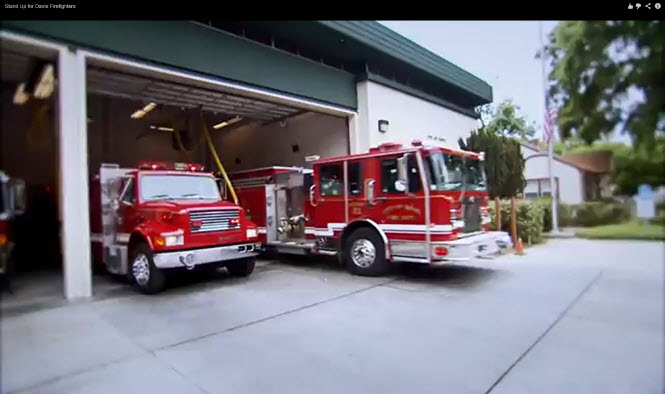 On October 15, 2013, the Davis City Council voted 4-1, with Councilmember Lucas Frerichs dissenting, to enter into an agreement with UC Davis for Shared Management of the City of Davis and UC Davis Fire Departments.
On October 15, 2013, the Davis City Council voted 4-1, with Councilmember Lucas Frerichs dissenting, to enter into an agreement with UC Davis for Shared Management of the City of Davis and UC Davis Fire Departments.
Staff has now returned with the language of the agreement that is effective for one year from January 1, 2014 until December 31, 2014. There will be an automatic renew if neither party withdraws from the agreement on or before June 30, 2014.
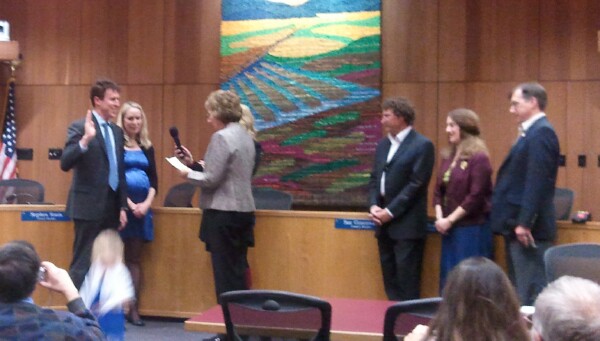 While many believe that Davis Mayor Pro Tem Dan Wolk is the frontrunner for the 2014 open Assembly Seat currently held by Mariko Yamada, the Wolk campaign has to thread a rather perilous needle.
While many believe that Davis Mayor Pro Tem Dan Wolk is the frontrunner for the 2014 open Assembly Seat currently held by Mariko Yamada, the Wolk campaign has to thread a rather perilous needle.
On the one hand, they want to avoid the linkage between Dan Wolk and his mother, the current State Senator Lois Wolk. But on the other hand, they need to be able to take advantage of her reputation, experience and network in order to bring in endorsements, money and ultimately votes.
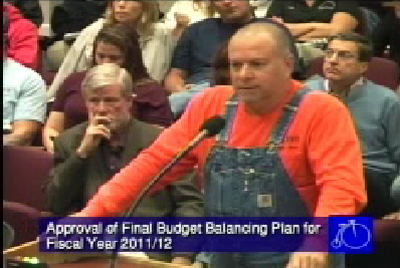
On Tuesday, the Davis City Council did what they had to do, in fact they did what they were elected to do – make tough decisions with regard to the city budget. The process is broken, it took way too long, it cost way too much money.
But there was no mistake this time – the council dotted their “i’s” and crossed their “t’s.” There will be no 11th hour PERB board ruling to turn this back.

The Davis firefighters’ union may have lost their influence and hold over the city government, but the power and influence that they have outside of the city boundaries was on ready display earlier this week when four current and on past elected officials co-wrote a letter to the Davis City Council filled with concerns about the proposed Fire JPA.
Unfortunately for them, they did not do their homework. There were numerous errors in the structure and content of the letter. The most stunning thing is that not one of those individuals met with either the city of Davis or UC Davis Vice Chancellor John Meyer to express their concerns or learn more about the process.





The letter argues, “We believe that governance of public safety is and must remain a core function of the elected City Council of Davis. Community oversight and accountability is an important element of municipal services.”





At tonight’s city council meeting, the council, following a long and tedious process, will finally hold a public hearing to make the determination as to whether they can impose their last, best and final offer to the Davis City Employees Association.
DCEA has be operating for the last two yeears under an MOU that expired in 2009, since the PERB Board overturned the city’s last imposition of last, best and final offer.





The Davis firefighters are taking a two-pronged approach to combating the proposed Joint Powers Agreement for joint management of the fire department with the UC Davis Fire Department under a single chief. In addition to the reported distorted public signature campaign, the union is attempting to leverage the process through legal means by filing a complaint of violation of the Meyers-Milias-Brown Act (MMBA) with regard to a failure to meet and confer.
While city officials would not comment on the content, they did indicate that they believe that this is another fruitless attempt by the union to prevent the council from implementing the JPA that was agreed to in principle back in October and would be ratified in December.





In the winter and spring, they held public meetings and walked precincts trying to scare the public on staffing cuts. They have protested in front of city hall for weeks. None of these actions have produced much in the way of results for the union, however.
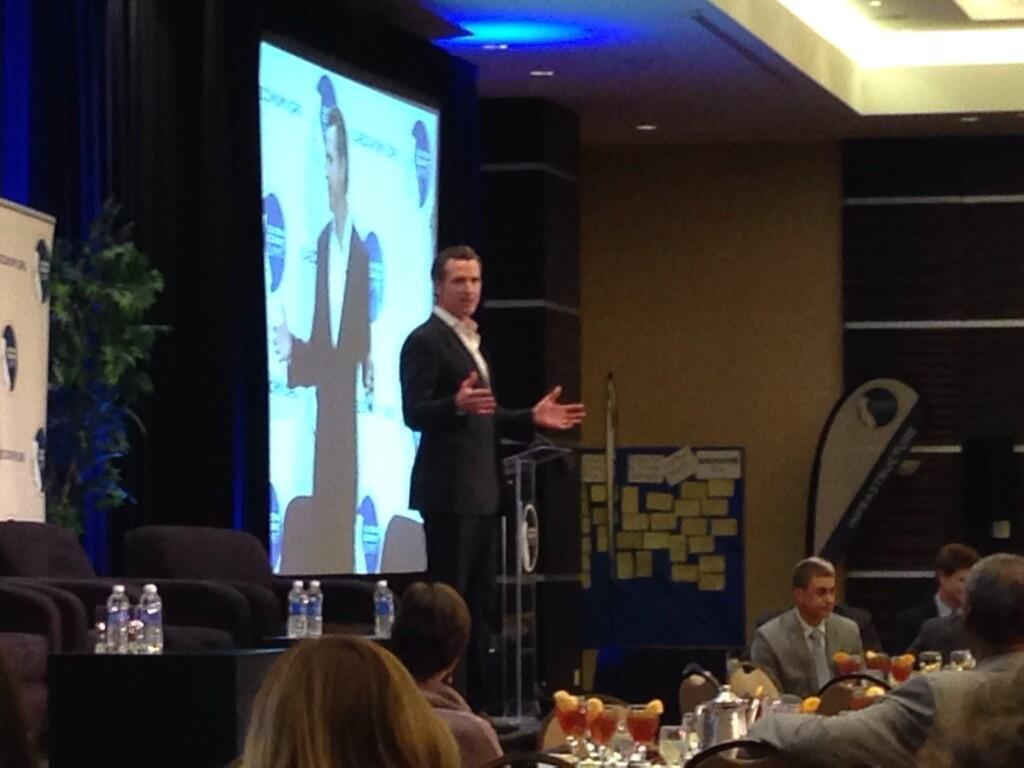

I attended the California Economic Summit in Los Angeles last Thursday and Friday. It was hosted by the California Stewardship Network and California Forward, which has several staff located right here in Davis and Sacramento. Information about the Summit can be found here.
The California Stewardship Network website describes the organization as founded in 2008 when “the Morgan Family Foundation launched the California Stewardship Network as a civic venture, investing $ 1.5 million over 2 years in matching grants to 10 economic regions that agreed to focus on breakthroughs led by stewardship teams composed of business, community and government civic entrepreneurs.”


In August, Marrone Bio Innovations (MBII) went public, raising $65 Million, less costs, and establishing an initial market cap of $230M (it has since “popped” to almost $350M, as of this writing). At the same time Bayer announced its intention to relocate its Davis operations -acquired last year for $425M from AgraQuest – to new facilities in West Sacramento, consolidating global Bayer CropScience R&D for a major growth effort here.
There’s much to celebrate here in terms of economic development for our region and especially our AgTech/BioTech/CleanTech communities. But those two successes are linked and the story of that linkage is deeply inspirational and includes a dash of disappointment in the background that makes the flavor of success all the more interesting.


“The retirement system made two policy changes that have raised costs for its clients,” the Bee writes. “It lowered its expected rate of return on investments, and it changed accounting practices to cover massive recession-era investment losses over a shorter period of time. Both changes were long overdue. But they will cost local governments, and taxpayers, a bundle.”


Below is a high-level description of the activities that we at City Hall are working on each and every day. Many of the activities are divided amongst two staff (Sarah Worley and myself), but we work closely with the City Council, City Manager, other City departments and staff, and community organizations to achieve these efforts.
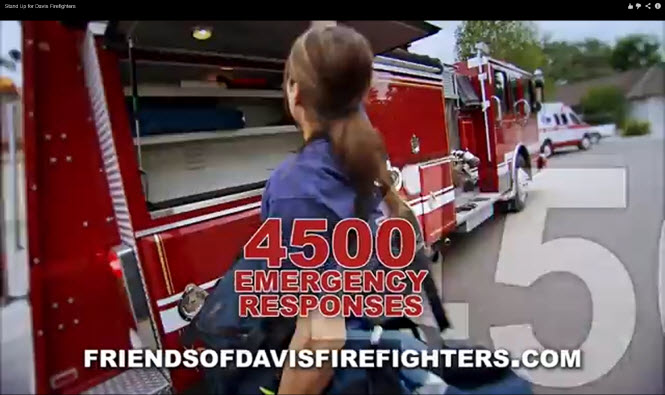

The firefighters took advantage of several key things. First, the city’s general fund budget was booming with double-digit revenue increases from property taxes for several years. Second, somehow, city leaders managed to convince the public that, despite the real estate revenue boom, they city needed more revenue and got the public to approve a half-cent sales tax generating $3 million that would effectively go to the firefighters.





The handwriting is on the wall – or at least it would be if the leaders of the holdout employee bargaining groups, the Davis City Employees Association and the Davis Professional Firefighters Association, were being realistic rather than chasing rainbows. The city has done their research, they have done the fiscal analysis and they are in the process of dotting their I’s and crossing their T’s.
When your fact-finder, who is typically pro-labor, writes, “There is not much margin for error,” and, “The DCEA failed to identify a source of money to fund generous pay raises or to retain lucrative benefits such as the PERS [Public Employees’ Retirement System] pick up and no employee contribution to health insurance premiums,” you are not going to win this.


While attending a board meeting for the Innovate North State Innovation Hub, I was asked to provide a quick summary of Davis-related tech activities. My list was considerably longer than any of my colleagues from other areas of Northern California and it occurred to me that Davis has many examples of a vibrant technology sector. Since many of these activities probably would not be on a typical Vanguard reader’s radar, I thought it would be important to highlight some of these activities as a way to demonstrate the value of the sector to the Davis community.
Provided below is a list of tech related activities that are occurring now and over the next 3 to 4 months. This list is by no means comprehensive and does not cover all of the activities associated with the university.





When a normally labor-friendly process largely upholds the city position in bargaining, it is a very bad sign for the two hold-out labor groups and a very good sign for the city. For a variety of reasons, some of which were laid out by the city’s representative on the three-member panel, the city cannot implement the recommendations of the fact-finding panel. However, the overall findings largely back the city’s position.
This is in marked contrast to the previous fact-finding session which looked at the 2009-10 contract. Here the city’s representative in the process was Samantha Wallace, who is a Community Services Superintendent for the city of Davis and works under the HR director, Melissa Chaney.





“On February 18, 2010 and following unsuccessful mediation, the DCEA requested factfinding pursuant to Employer-Employee Relations Resolution No. 1303. While the record is not entirely clear, the parties endeavored to select a factfinder but encountered some difficulty in scheduling a factfinding hearing,” Mr. LaRocco writes. “Factfinding did not occur. On May 25, 2010, the City Council adopted a resolution imposing the City’s last, best, final offer on the members of the DCEA bargaining unit.”